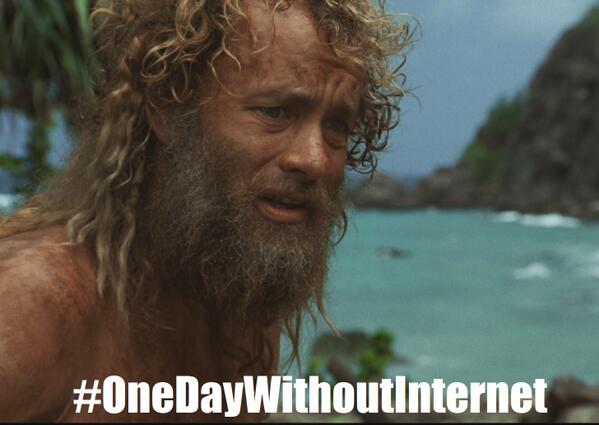
Consumer,Contract
Can Malaysian companies make you pay for cancelling your contract? A lawyer sued to find out
Not published yet ago Denise C.Questions for Fahri
- Can the Code established by the CMA be used alongside the CPA for consumer issues?
- The defence alleged that for prosecutions related to unfair terms, permission from the PP is needed to start prosecution. Is this the same as initiating a civil suit?
You just moved into your sick new pad, it has the sleekest furniture, the fluffiest bed and all that stuff to make your home a heaven on earth. However, all these creature comforts would not be complete without a high-speed, stable internet connection (because Maslow clearly oversaw this) and you head over to one of the many local internet providers in Malaysia to sign up for their premium package. Before you put your signature on the form, you remember to check if your area has coverage – the salesman assures you that the coverage in your area is in impeccable so you sign up for the priciest package with a whooping two year contract.
3 months down the line your little heaven has turned into a mini hell as your internet never works. It is slow, it lags, it doesn’t connect at times. Basically whatever hell you can think of has manifested into the tiny particles of your wifi and angrily, you head over to cancel your contract. The company processes your cancellation speedily but as you are about to wrap up, the guy goes, “Sir, one more thing. You are required to pay the balance months as penalty for cancelling your contract early.”
He points you to an innocuous clause in the contract and you are floored. Is it even legal for companies to force you to pay when you cancelled the contract because their service was shitty? Well…
One lawyer sued to find out

Lawyer, Fahri Azzat, entered into a contract with a local internet service provider for the provision of a mobile broadband internet service for 24 months together with a free mobile hotspot device. The contract had this standard clause that reads:
“Before the expiry of an applicable Contract Period, if You terminate this Agreement OR if this Agreement is terminated due to your fault, You shall in addition to the foregoing sub-clause (a) (ii) and (iii) be liable to pay Us the sum aggregate to the Commitment Fees for the unexpired Contract Period (hereinafter referred to as “Early Termination Charges”)” – contractual clause excerpted from the contract Fahri signed
Basically what this clause means is this – if you decide to terminate your contract before the end of the agreed upon contractual period, you are liable to pay the remaining months as early termination charges. This indubitably feels unfair to you, the consumer because you would have to pay for services which you are not using and which the company does not have to provide.
Fahri faced connectivity issues and decided to terminate his services but he was showed that clause and was asked to pay up about RM500 in early termination charges. Fahri then sued relying on the Contracts Act 1950 ("CA 1950"), Sale of Goods Act 1957 ("SOGA 1957"), and Consumer Protection Act 1999 ("CPA 1999").
In essence, Fahri argued the following issues:
- The internet service breached the implied guarantee of quality and fitness for purpose – section 16 SOGA 1957, section 32 and section 33 CPA 1999
- The contract was not given to him to read or negotiate on before signing (it was merely available online on the company’s website)
- The contract is a standard form contract – section 24A(b) CPA 1999
- The clause allowing for early termination charges is an unfair clause – section 24A(C), section 24C and section 24D CPA 1999
- The company did not suffer any losses and the early termination charges are not a reasonable compensation (penalty for terminating) – section 75 CA 1950
- The clauses provided that any quality of service is dependent on extraneous factors and that the service is provided on an “as-is” basis
It feels like Fahri should succeed, because if does sound pretty unfair for companies to be able to impose such payments on us, especially when the service provided is not up to par. Let’s take a look at what the courts said.
The company argued a different law

The lawyers for the company argued that since it is a contract for the provision of network services, it is not caught by the CPA 1999 but instead, it is caught by the Communications and Multimedia Act 1998 (“CMA 1998”). They referred to sections 189 and 190 to argue that for contracts providing internet services, the relevant law is the CMA, specifically the General Consumer Code of Practice for the Communications and Multimedia Industry Malaysia ("the Code").
According to section 190 CMA, this Code is meant to govern procedures for handling customer disputes, customer billing, and many other issues:
“A consumer code prepared by a consumer forum or the Commission shall include model procedures for...the handling of customer complaints and disputes...The matters which the consumer code may address may include, but are not limited to...customer charging, billing, collection and credit practices...”
The important part of this Code is this – it says that before the contract is entered into, the company must inform the consumer (you) of the minimum duration of the contract, and any specific terms which state that the consumer must pay a termination payment if the contract is terminated before the end of the minimum duration.
It seems like that the Code seems to indicate that there is no unfairness in setting out a minimum duration contract and for charging early termination charges. If this is true, then Fahri’s entire argument is moot because if the term is not unfair, it being a standard form contract is irrelevant, and it doesn’t matter whether or not the company suffered losses because they are entitled to levy such charges after all.
Well...this is what the court said…
It’s not unfair to charge consumers for early termination

The court said that first off, since the early termination charges is in line with the provisions of the CMA 1998, the references to the CPA 1999 is not applicable. The judge basically ruled that clauses providing for early termination charges are not illegal or unfair and in any event, the proper law to refer to is the CMA and the Code because the contracts for provisions of internet services are specific contracts which are governed exclusively by the CMA.
Aside from that, the judge also made these few comments:
- The fact that Fahri was not given a chance to read or negotiate on the terms of the contract was inconsequential because he should have read the contract provided for on the website before signing the application form. His access to the contract was not barred merely because it was only available online.
- He was bound from contesting against the terms of the contract because he signed it (the good ole’ rule of being bound by whatever you sign)
- As a lawyer, Fahri was held to a higher standard of accountability and the judge said that he was not forced into signing the contract nor did he have no choice but to sign the application form and there was no significant imbalance between the company and Fahri
- The early termination charges’ clause are not meant to be a penalty to consumers nor are they a form of compensation for any damages that the company might face in an early termination. The clause is merely a manifestation of a contract between two parties and it was Fahri’s fault for not taking the initiative to read the contract beforehand
- The free mobile hotspot device that was given to Fahri for free in return for signing up for a 24 month contract was a clear indication that Fahri benefitted from such a contract
- Since Fahri was the one who opted for early termination of the contract, he is in fact, liable for breach of contract and him filling up the early termination form is not a form of coercion on him but merely a procedure in handling such cases
However, given how one of the reasonings given by the judge is that Fahri was held to a higher standard given his status as a lawyer, it is unclear how the case would pan out if it was brought by a layman.
It is quite possible that the case may be decided differently if the courts are of the opinion that a company has used its position to unfairly burden a consumer. Until and unless that happens, the status quo of the law is unfortunately that where you would have to bear the penalty charges or ride out the contract.
"No no I clean"